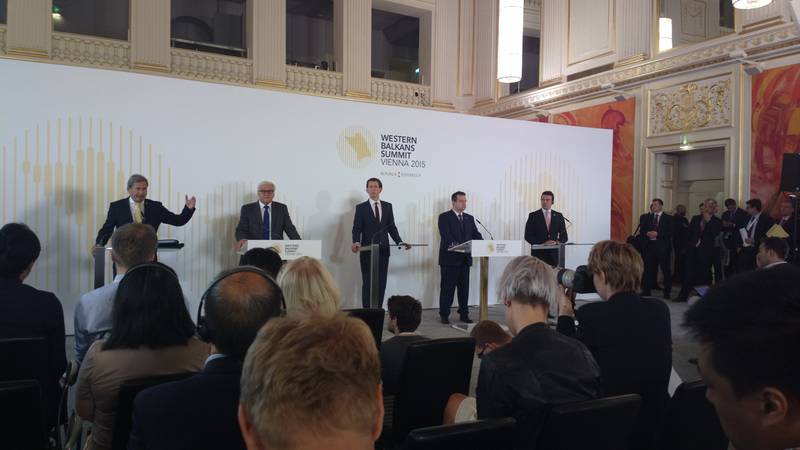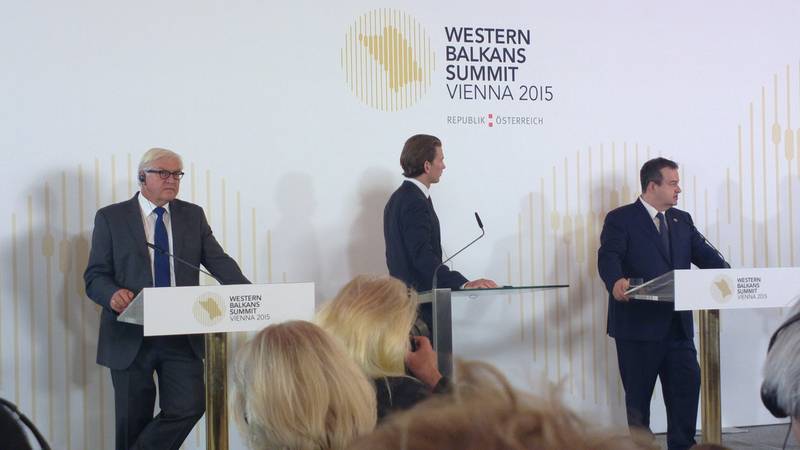Bulgaria Missed a Brilliant Foreign Policy Opportunity
Adelina Marini, August 31, 2015
Bulgaria once again missed a brilliant foreign policy opportunity to position itself as a constructive player, or a player at all, in the Western Balkans region that would have given substance to what had been repeated for years – the region being important to Sofia. Instead of acting like a member state of the EU that is affected, although not on the front line of the refugee flow, and calling for a regional summit to see what help is most needed by our neighbours Serbia, Macedonia, and also Greece, who are the Western Balkans route of the refugees, Bulgaria mobilised its army to guard the borders. One can hear statements, coming from the minister of foreign affairs, which are very similar to the ones of the government of Hungary, who are building a wall at the border with Serbia.

Apart from calling for a regional meeting that Macedonia and Serbia think should have been held long ago, Bulgaria could have been active at the European level in calling for a common solution. And we are not talking about just dealing with the refugees but about an attitude. Serbia’s First Deputy Prime Minister and Minister of Foreign Affairs Ivica Dačić placed the quite legitimate question of what kind of message is being conveyed by the countries which, by building walls, are practically isolating Serbia and Macedonia. The two states have long enough been isolated from European attention. In other words, Bulgaria managed to kill two birds with one stone – missed the opportunity to score points on the European level by setting an example (like Germany did by refusing to enforce the Dublin Regulation, i.e. returning refugees in the first country that let them in on European territory), or to come up with a constructive proposal for a community solution to the problem and also for solidarity with candidate states that have neither the financial capacity, nor suitable infrastructure.
By reinforcing its borders with Serbia and Macedonia Bulgaria effectively built a wall with these two countries that are key to stability in the region and its European perspective. The Berlin Process, a German initiative, was joined by Austria last year, which is why it is hosting it this year. The process enjoys the special support of Slovenia and Croatia and was joined by France and Italy this year. Bulgaria’s absence in Vienna did not go unnoticed. In his exceptionally sincere statement Ivica Dačić noted that Bulgaria, Greece, and Hungary should have been present at the summit for they are part of the problem. He called for the Berlin Process to be expanded with these three states. This was greeted coldly by German Foreign Minister Frank-Walter Steinmeier and Commissioner Hahn.
The host, however, Austrian Foreign Minister Sebastian Kurz called for EU self-criticism. He finds it shameful that a member state is letting through thousands of refugees into non-member states. He referred to Greece, but similar words could be used about Bulgaria and Hungary, who are protecting themselves from refugees by redirecting them towards other member states like Croatia and Romania. Chancellor Werner Faymann extended his special gratitude to all who participated in the Berlin Process, calling it a demonstration of togetherness. And while Dačić was being diplomatic in just asking for Bulgaria, Hungary, and especially Greece to be invited to join the Berlin Process, Croatia’s First Deputy Prime Minister and Minister of Foreign Affairs Vesna Pusić answered my question on what she thinks about countries that are building walls without any hesitation: “Nothing good”. She assured that Croatia will not be building a wall.

Bulgaria refuses to demonstrate solidarity with Eurozone countries, because this is not our problem and we are very poor. It refuses to show solidarity with its neighbours and EU partners in the solving the refugees issue, again because we are poor and have difficulties. We do nothing to find a European solution. We choose the path of least resistance – we guard our borders and all is well. We do, however forget EU’s solidarity with us. First of all with the money we receive from the European funds, even though we have not dealt with corruption and organised crime. We forgot we were let in unprepared, taken on trust, in the EU, although with a Mechanism, and now we want to be accepted in Schengen, claiming this will not weaken our resolve to battle corruption and organised crime.
We want to have pro-active foreign policy in the Balkans, claim we are ready to aid these states in their way towards the EU, but we slam and bolt the door at the first sign of danger. It is pleasing to the ear when the foreign minister stands up to Russia, but this is not yet foreign policy. Good diplomacy requires action and excellent diplomacy requires pro-active approach and good timing. It is a shame another good possibility was missed, for the situation could be viewed at a different angle. According to Dačić, this way the EU is isolating the affected countries (Macedonia and Serbia), but it is also true that Bulgaria has isolated its own self – both from the countries of the region and from the EU.
Translated by Stanimir Stoev
 Bakir Izetbegovic, Andrej Plenkovic | © Council of the EU
Bakir Izetbegovic, Andrej Plenkovic | © Council of the EU Aleksandar Vucic, Recep Tayyip Erdogan | © Serbian Presidency
Aleksandar Vucic, Recep Tayyip Erdogan | © Serbian Presidency Jean-Claude Juncker, Zoran Zaev | © European Commission
Jean-Claude Juncker, Zoran Zaev | © European Commission